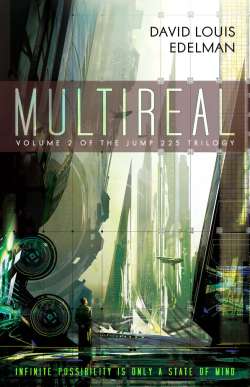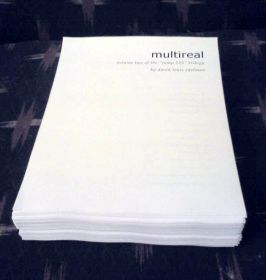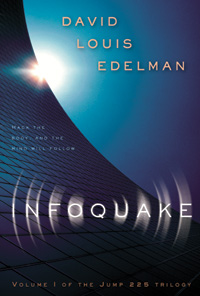If you’re at all interested in the copy editing process that a novel goes through before it sees print, you might find this interesting. Here’s a conversation I just had this morning with my copy editor, Deanna Hoak, about a sentence in my upcoming book MultiReal. I’ve done a very minimal amount of editing to remove the “brb”s and such, but otherwise this is exactly how the conversation occurred.
 The chapter in question is a flashback featuring a conversation between Marcus Surina and his daughter Margaret. In the original passage, Marcus says: “There’s a look people get when the Null Current is about to pull them under, Margaret. A look of inevitability. It’s the look of the stalk of wheat, watching the thresher approach and knowing that the time’s come for a newer, stronger crop to bask in the sun.”
The chapter in question is a flashback featuring a conversation between Marcus Surina and his daughter Margaret. In the original passage, Marcus says: “There’s a look people get when the Null Current is about to pull them under, Margaret. A look of inevitability. It’s the look of the stalk of wheat, watching the thresher approach and knowing that the time’s come for a newer, stronger crop to bask in the sun.”
Now Marcus Surina’s supposed to be a little — well, odd. But Deanna’s concern was that having him ascribe emotion to a stalk of wheat might be a little too odd. So we hashed it out this morning over IM as follows:
Deanna: With the wheat thing, maybe about a mouse that can’t get away fast enough?
Deanna: I’ll look at it more closely on second read, or you can let me know if you think of something.
DLE: Let me look at that sentence
Deanna: I just know it hit me as off when I read it the first time.
DLE: Hmm
DLE: You’re right… it does seem weird for a stalk of wheat to have a “look”
Deanna: Yeah, I was afraid the reader would perceive him as loonier than you intended.
DLE: He *is* supposed to be odd, and use really weird metaphors
DLE: But… you’re right. That might be pushing it.
DLE: What if I said something like “It’s the look that the stalk of wheat must get when it watches the thresher approach…”
DLE: Does the “must get” distance it at all?
Deanna: Hm. I think “look” is really the problem.
Deanna: “Look” with “wheat”
Deanna: From my way of thinking…
Deanna: It’s early in the book. The reader isn’t going to know yet if it’s just him who talks that way, or if you just write that way. I would fear someone picking it up in the bookstore and thumbing through the first few pages might think you continually use those.
 The photo you see here is the completed manuscript of my second novel, MultiReal, the sequel to
The photo you see here is the completed manuscript of my second novel, MultiReal, the sequel to  I think I’ve discovered now why authors do that.
I think I’ve discovered now why authors do that.